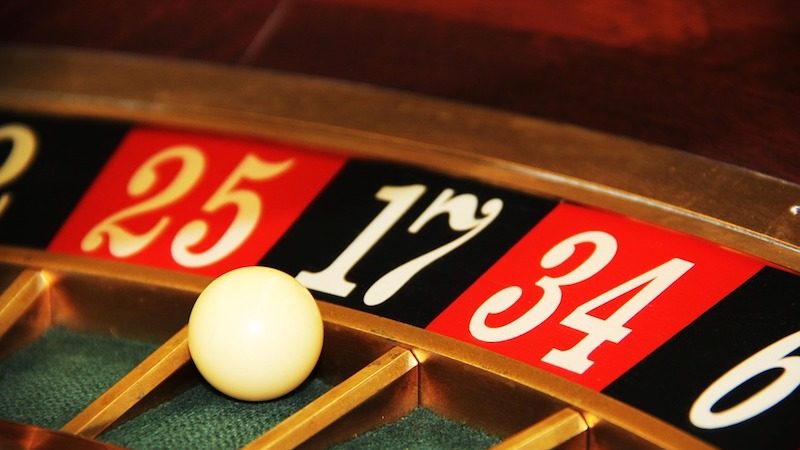Malta has been described as the “ATM for the Italian Mafia” by the Investigative Reporting Project Italy (IRPI), which forms part of the Daphne Project, a consortium of international journalists working on the investigations initiated by murdered journalist Daphne Caruana Galizia.
IRPI said that when online gaming systems are controlled by organised crime they can essentially function as ATMs for criminals.
“This is the conclusion reached by anti-mafia prosecutors in Palermo, the capital of Sicily, who in February 2018 cracked down on a vast Maltese gambling network allegedly linked to families belonging to the Cosa Nostra, Sicily’s infamous mafia organisation,” IRPI said.
Moreover, after Italian prosecutors “exposed” mafia infiltration of the lucrative online gambling industry in Malta, a number of companies threatened to leave Malta.
According to sources, a number of companies informed the industry regulator, the Malta Gaming Authority (MGA), they would pack up and leave if it failed to clean up the sector.
Highlighting a persistent lack of cooperation from the Maltese authorities, IRPI journalists Matteo Civillini and Cecilia Anesi said Italian authorities are exasperated.
The lack of cooperation led the chief anti-mafia prosecutor in Catanzaro, a region in Calabria, to publicly declare his frustrations with the Maltese authorities last year.
“It is easier to work with Peru or Colombia than with Malta… If Malta decides not to collaborate or replies six months or a year later, the investigation is useless,” the prosecutor, Nicola Gratteri, said.
The threat of gaming companies leaving the island came after a Palermo court issued 26 arrest warrants in an operation called Game Over. The probe uncovered the extent of ties between Italian organised crime and the gaming industry in Malta.
Saying that journalists “have pieced together a disturbing picture,” IRPI said “Malta’s capacity to effectively police this industry has since become a source of worry for law enforcement across Europe.”
IRPI said the industry’s success has come at a high price. “For the past decade, Italian investigators have been looking into how various mafia organisations have exploited Maltese online gaming to make and launder large amounts of money. They found repeated instances of criminal infiltration and a lack of effective oversight by the Malta Gaming Authority (MGA), which regulates the industry. The latest anti-mafia operations also reveal how the lucrative Maltese online gaming licenses change hands from one criminal group to another.”
After his arrest in November 2017 Sergio Macaluso, a Cosa Nostra affiliate turned police informant, told investigators that the mafia’s interest in online gambling started in 2013-2014.
“They infiltrated the sector by making deals with the owners of betting websites, many of whom are set up in Malta because it guarantees a more favourable tax regime,” Macaluso said.
IRPI added that Maltese registered online gambling businesses continue to operate even after their licenses have been suspended by the regulator.
“In at least one case, they have been assisted by a ‘fiduciary’ (a legal entity which manages assets on another’s behalf) created by a former MGA official, one of a number of such organisations which help criminals obtain licenses and hide behind secretive corporations.”
Malta-registered online gambling companies with alleged links to the Italian mafia went through multiple due diligence checks by different entities, which found nothing irregular.
At the end of last year, the chief anti-Mafia procurator in Palermo, Salvatore de Luca, discovered that Mafia bosses were planning to shift their illegal activities to Malta’s online gambling industry.
“Malta has recently become the capital of online gambling and the Mafia bosses thought that this would be a good financial vehicle for them and less risky than making their money from extortion,” de Luca said.
In 2015, Betuniq and Betsolution4U had their licences suspended by the MGA after an investigation by Italian police linked the Malta-based companies to an organised crime network that used online gaming for money-laundering.
Six Italian nationals, including ‘Ndrangheta’s point-man Mario Gennaro – connected to the Betuniq brand and living in Malta, were arrested and extradited.
More recently, Malta’s gaming regulator suspended the license of another online gambling operator linked to organised crime in Italy. This year, raids on dozens of internet cafés by Italian police, led to the arrest of B2875 owner Benedetto Bacchi, the so-called ‘betting king’ who reportedly controlled a network of 700 betting shops across Italy.












